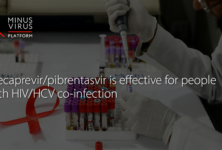Pneumococcal infections among patients with virologically suppressed HIV decreased significantly in recent years, according to data from a retrospective, case-controlled study.
Researchers suggest changing vaccination strategies from a systematic approach for patients with HIV to a targeted strategy for those at risk.
“Early in the course of the HIV outbreak, it has been established that patients at an advanced stage of HIV-infection are at increased risk of pneumococcal infections. A higher rate of bacteremia and recurrent pneumococcal infections has been described in this population, including them among the CDC criteria of AIDS,” Anaïs Lesourd, MD, of the Centre Hospitalo-Universitaire Charles Nicolle, Service de Maladies Infectieuses et Tropicales, Rouen, France, and colleagues wrote. “In daily care, it appears that pneumococcal infections are becoming an uncommon complication of HIV infection: in our ward, patients hospitalized for pneumococcal meningitis, bacteremia or pneumonia are no longer HIV-infected, questioning the fact that pneumococcal infections in HIV-infected patients may no longer represent a significant burden.”
Lesourd and colleagues analyzed pneumococcal infections that occurred between 1996 and 2014 among patients at two regional hospitals in France, comparing the 80 most recent cases to 160 HIV-positive patients without pneumococcal infection. Over 18 years, the researchers identified 116 pneumococcal infections in 93 patients. Fifty-three (46%) had non-invasive infections and 40 (34%) had invasive infections. There were 23 (20%) recurrent infections among 18 patients. Lesourd and colleagues reported two attributable deaths — 1.7% of infections and 2.2% of patients with pneumococcal infection. Fifty-six percent of patients with HIV received at least one dose of a pneumococcal vaccine.
Mean annual incidence of pneumococcal infections was 373 per 100,000 patients in the total cohort, the researchers wrote. Incidence decreased from 377 per 100,000 in 1996 to 174 per 100,000 patients in 2014. From 2000 to 2014, researchers identified 98 infections among 80 patients. Hospitalization for pneumococcal infections led to an HIV diagnosis in 17 (21%) patients.
Forty-two patients previously diagnosed with HIV (67%) had undergone ART, and 28 (45%) of those had achieved viral suppression. ART was a protective factor for pneumococcal infections, Lesourd and colleagues reported. Forty-two (66.7%) patients previously diagnosed with HIV were undergoing ART, while 105 (85.7%) controls were on ART (OR = 0.37; 95% CI, 0.17-0.77).
A multivariate analysis showed that alcohol abuse (OR = 3.5; 95% CI, 1.3-9) and CD-4 counts less than 500 µL were independent risk factors for infection, with the risk for pneumococcal infection rising as CD-4 counts decreased. Risk increased threefold with a CD-4 count between 200 µL and 500µL (OR = 2.6; 95% CI, 0.98-7.1) and 15-fold for a CD-4 count less than 200 µL (OR = 15.3; 95% CI, 5.1-45.8) compared with a CD-4 count great than 500 µL (OR = 1).
“According to the guidelines, a pneumococcal vaccination remains recommended to all HIV-infected patients regardless of their CD-4 cell count (the response to vaccination does not seem to be impacted by a lower CD-4 cell count; the only predictive factor of a better response to conjugate and polysaccharide vaccines in HIV-infected patients appears to be an undetectable HIV-plasma viral load),” Lesourd and colleagues wrote. “This series suggests that HIV infection is no longer per se a significant risk factor of pneumococcal infections, raising the question to interrupt the ‘systematic’ pneumococcal vaccination not well applied in real life, and to concentrate the efforts on the most at-risk patients: Those sharing the classical risk factors for pneumococcal infections of the general population or failing to achieve control of their HIV infection.”
Lesourd A, et al. Open Forum Infect Dis. 2016;doi:10.1093/ofid/ofw228.
By Andy Polhamus


 ПОИСК ПО САЙТУ
ПОИСК ПО САЙТУ  поиск по ресурсному центру
поиск по ресурсному центру 



